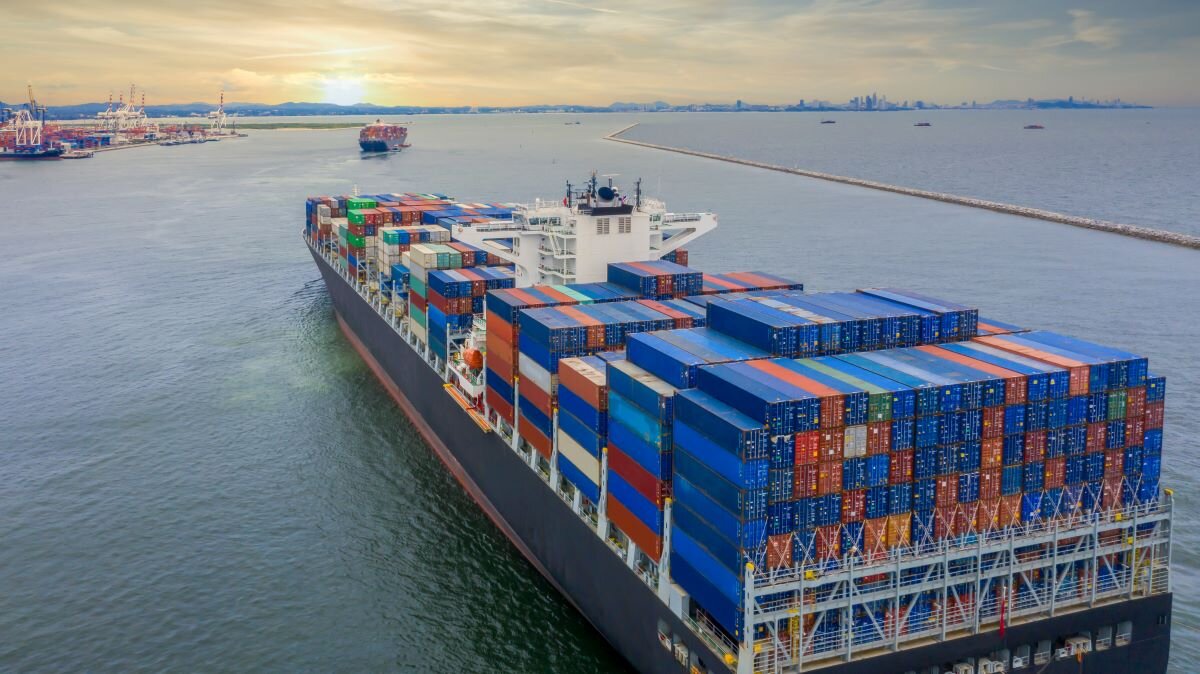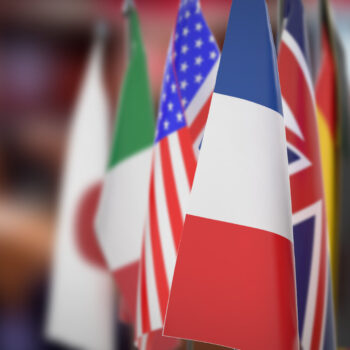E3G and KAS are hosting a joint forum on Climate, Trade and Development Pathways towards Transatlantic Cooperation and Policy Frameworks. Join us on Thursday, January 27th 2022 from 10:00 to 11:00 AM EST / 15:00 to 16:00 GMT.
A new report by E3G and published by the Konrad-Adenauer-Stiftung USA explores the interconnectivity of three distinct policy areas: climate, trade and development. Critical components of the discussion are how trade can play an essential part in addressing the larger challenge of climate change and its impact on developing countries.
The Konrad-Adenauer-Stiftung and E3G invite you to join this online discussion. Experts will provide their perspectives on the report’s findings. Emphasis is on the relevance of transatlantic cooperation for finding and promoting answers to the climate-trade-development nexus. Additionally, other aspects on the agenda are the current geopolitical landscape and actionable pathways towards a climate- and development-aligned trade regime. The experts will also present national and international solutions to carbon leakage while promoting climate-friendly trade policies.
Read the report here: The Climate–Trade–Development Nexus: Pathways Towards Transatlantic Cooperation
Watch the recording
Event details for E3G-KAS Forum on Climate, Trade and Development Pathways
Welcoming Remarks:
Paul Linnarz, Director, KAS Office USA
Claire Healy, Head of US Office, E3G
Followed by a discussion with:
Caroline Freund, Dean of the UC San Diego School of Global Policy and Strategy
Peter Young, Minister-Counsellor and Deputy Head of the Trade Section at the EU Delegation to the US
Moderator:
Max Gruenig, Senior Policy Advisor at E3G
Download the publication as a PDF here.
Speakers
See more information on the forum’s speakers below.
Dean of the UC San Diego School of Global Policy and Strategy, Caroline Freund is an expert in international trade and economic development.
Prior to joining GPS, she served as global director of Trade, Investment and Competitiveness at the World Bank. Freund also served as a senior fellow at the Peterson Institute for International Economics. In addition, she has worked as chief economist for the Middle East and North Africa at the World Bank, after working for nearly a decade in the international trade unit of the research department. Freund began her career in the international finance division of the Federal Reserve Board and spent a year visiting the research department of the IMF.
The author of “Rich People Poor Countries: The Rise of Emerging Market Tycoons and their Mega Firms,” Freund was co-director of the World Bank’s flagship World Development Report 2020 on Global Value Chains. She has also published many articles on the effects of regional trade agreements and edited a volume on “The WTO and Reciprocal Preferential Trading Agreements.” Her work has appeared in academic journals, including: American Economic Review, Quarterly Journal of Economics, Review of Economics and Statistics, Journal of International Economics and Journal of Development Economics.
Freund was also a member of the EXIM Bank advisory committee from 2014-16, and the scientific committees of CEPII (Institute for Research of the International Economy, Paris) and the Economic Research Forum (Cairo). She is a member of the Centre for Economic Policy Research and on the editorial board of the Economics and Politics journal.
Peter Young has a long and varied experience in EU trade policy. He is presently the Deputy Head of the Trade and Agriculture Section at the European Union Delegation to the United States in Washington DC. He took up this post in August 2020 and has the Diplomatic title of Minister Counsellor.
Prior to this assignment, he was a Senior Expert in the Directorate-General for Trade at the
European Commission in Brussels and was responsible for coordination and management of the EU’s trade relations with the United States.
Between 2013 and 2017, Peter Young was Deputy Head of Unit in DG Trade, managing the
EU’s trade relations with the Southern Mediterranean, Middle East and Gulf regions, a total of 19 countries and territories.
He was in particular responsible for advancing bilateral relations, conducting trade negotiations and ensuring satisfactory implementation of existing EU Trade Agreements with Algeria, Iran, Iraq, Jordan, Morocco and the six member countries of the Gulf Cooperation Council.
Between 2010 and 2013, Peter Young was the Trade Counsellor at the European Union
Delegation to India in New Delhi.
Between 2007 and 2010, he was Deputy Head of Unit in DG Trade responsible for EU policy on Trade and Development, including the EU’s autonomous Generalised System of Preferences (GSP) scheme.
Between 2003 and 2007, he served as First Secretary at the EU Delegation to the WTO in
Geneva, representing the European Union in a number of WTO regular bodies and Doha
Development Agenda (DDA) negotiating groups.
Peter Young joined the European Commission, DG Trade, in April 1998, serving initially in
the Unit dealing with WTO affairs, where he was responsible notably for WTO accessions and EU policy on regional trade agreements.
Before joining the European Commission, Peter Young was Assistant Director (Head of Unit) in the United Kingdom Department of Trade and Industry. His career in UK Government service included a posting in Geneva as Second Secretary to the UK Mission to the GATT/WTO between 1992 and 1996.
He has worked on trade policy issues for the UK and then the EU almost continuously since
September 1989.
The Konrad-Adenauer-Stiftung (KAS) is a German political foundation. At home as well as abroad, our civic education programs aim at promoting liberty, peace, and justice. We focus on consolidating democracy, the unification of Europe and the strengthening of transatlantic relations, as well as on development cooperation.


